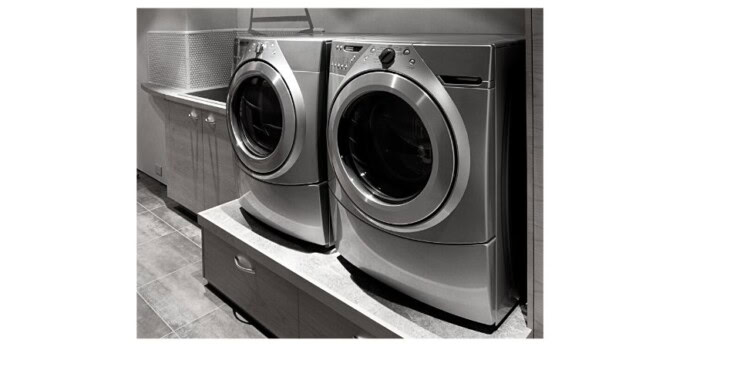Front–loading washing machines are a favorite among many because of their energy efficiency and the speed at which they can get clothes clean. However, there are some disadvantages to this type compared to conventional top-loaders. Keep reading.
Front Loader Washing Machine Overview
Front loaders are washing machines that use a front-loading door. The door opens from the front, allowing you to easily load and unload laundry. Front-loading washers are efficient, quiet, and easy to use. They’re also more expensive than top-loaders, especially if you buy a new machine.
Front-loading washers have become more popular over the years because they can save money on energy costs and water usage.
Many people who live in apartments or condominiums with limited space prefer these types of machines because they’re shorter than top-loaders and can fit in smaller spaces.
How does a front-loader washing machine work?
Front-load washing machines are very different from the top loaders that have been around for decades. They use less water and energy, and they clean your clothes better.
They work by tumbling your clothes inside a drum filled with water and detergent, then spinning them to remove excess moisture. The drum is encased in a plastic tub, which keeps water from leaking out onto your floor or into the rest of your laundry room during the wash cycle.
Front-load washers use less water than top-loaders because they don’t require an external agitator (the device that stirs clothing while it’s being washed).
The agitator can damage the clothing by tearing holes in them as it’s dragged across them during agitation cycles. Front-load washers also need less soap — as little as half as much — to clean effectively because they don’t rely on extra mechanical agitation to remove dirt from clothing fibers.
Disadvantages of front-loading washing machine
The front-loading washing machine is the leading washer in homes today. It offers a number of benefits and features that are not available with top-loading washers. However, there are some disadvantages as well. Here are some of them:
Have to bend to load or unload clothes.
The narrow door on front-loading washers is a big disadvantage for some people. It means that you have to bend over when you’re loading or unloading your clothes, making it harder on your back and knees.
Mold or mildew problems.
Front-loading washing machines can be more prone to mold and mildew problems because they don’t allow water to drain out of the tub as easily as top loaders do. This becomes a problem because it’s harder to get all of the water out of the machine after each cycle.
Front-loading washing machines require some maintenance
Front loading washing machines require some maintenance. They need to be cleaned regularly, and if you don’t clean them regularly, they may not function properly or wear out faster than other types of washing machines.

Front loader vs top loader
Front loaders and top loaders are two different types of washing machines, and each has its own advantages.
To help you decide which type is best for your family, here are some key differences to consider:
- Space efficiency. Front loaders take up less room because they’re smaller than top-loading machines. If you have a small laundry room, this may be an important consideration.
- Water efficiency. Front-loaders use less water and energy than top loaders because they don’t need to fill as much water to reach the right level in order to agitate clothes inside the drum. This is good news for families who want to save money on utility bills.
- Ease of loading and unloading dirty clothes. Front loaders have a door on the front that opens up so you can easily slide in dirty laundry. Top loaders have a door on the top that opens up by lifting or pulling it open, which makes it difficult to reach inside and pull out wet clothes especially if they’re not folded correctly. Front-loaders tend to have more space inside than top loaders do, so they’ll accommodate larger loads of laundry.
- The price: Front-loading washers tend to cost more than top-loading models due to their larger capacity and faster spin speeds. However, there are now front-loading models available at lower price points that still offer great performance.
Do front-load washers last longer than top-load?
This is a common question and one that does not have a single correct answer. The truth is, the life of your washing machine depends on several variables, including how many loads you run per week, the size of your family, and how dirty you wash your clothes.
That said, top-load washers tend to last longer than front-loaders. In general, top loaders are less expensive than front loaders, but they also use more water and energy (and produce more wastewater) per cycle. That’s why they may not be as energy efficient as their front-loading counterparts.

